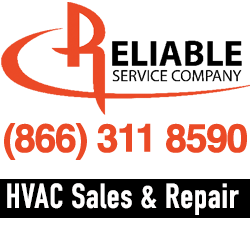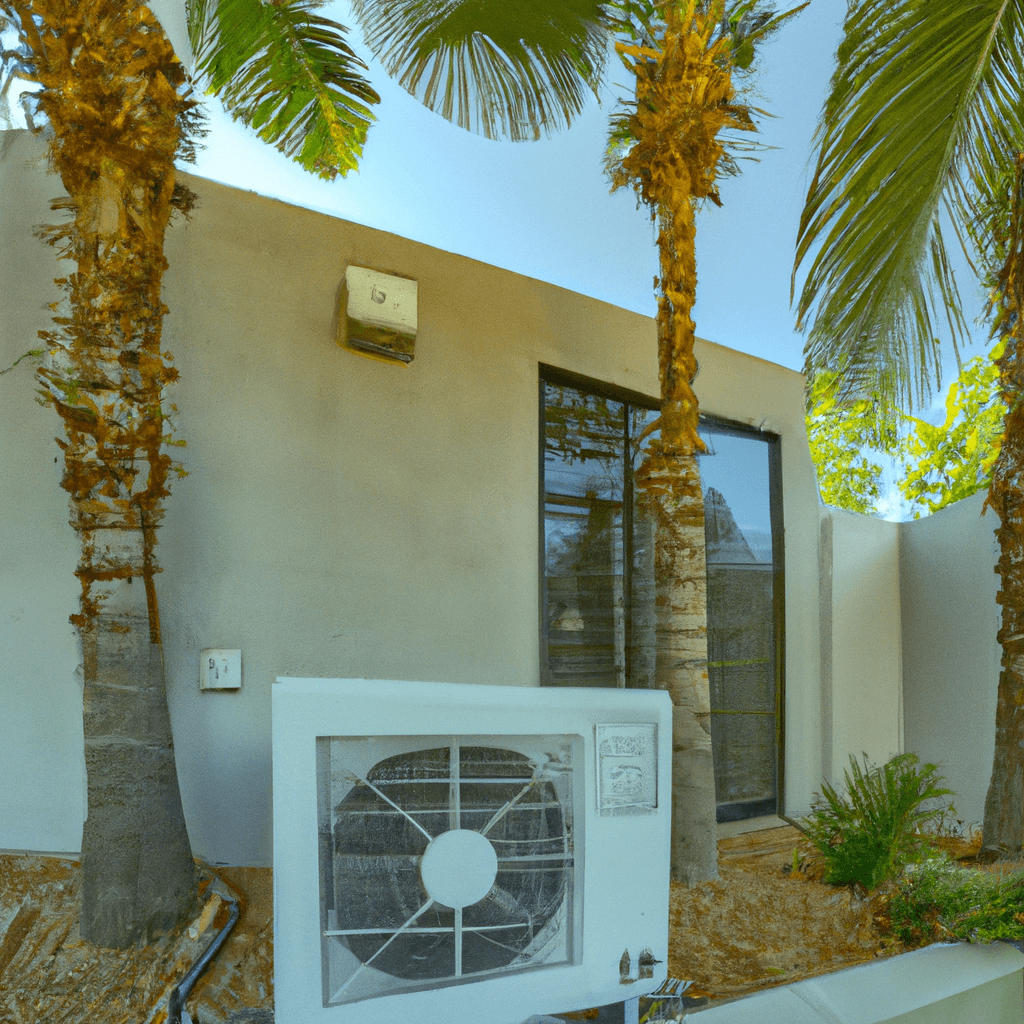Common Symptoms of a Bad AC Capacitor
It’s important to recognize the symptoms of a bad AC capacitor since it helps identify exactly what’s wrong with an air conditioner or heat pump. A bad capacitor can be responsible for a wide range of issues, including an AC or heat pump that won’t start, run inefficiently, or won’t keep your home cool or warm. That’s why it’s important to diagnose and replace a bad capacitor quickly and efficiently.
What Is an AC Capacitor and What Does It Do?
An AC capacitor (also called a run capacitor or a motor capacitor) is a small, cylindrical electric device which provides extra power to electric motors. It helps an air conditioner’s compressor and fan motor run more efficiently. Furthermore, the added power output of a capacitor helps a motor start up and overcome the initial resistance that occurs when it is initially turned on.
Common Symptoms of Bad Capacitors
A/C or heat pump systems can suffer from a variety of issues when their capacitors fail, so it’s important to recognize the common symptoms of a bad capacitor. If you notice any of the following signs of a failing capacitor, you should call a local, knowledgeable and reliable appliance repair technician immediately:
1. The unit won’t turn on or won’t start
One of the most common symptoms of a bad capacitor is a unit that won’t turn on. This means that the compressor and fan motor don’t even attempt to start operating. This can be caused by various factors, such as non-functioning capacitors, faulty wires or low levels of coolant.
2. A humming sound
A humming or buzzing sound can also be a sign of a failing AC capacitor. This is caused when the capacitor tries to function, but can’t because the fluid inside has become too weak. The noise might be more pronounced when you first turn on the system, but should go away when it’s time to shut off the system.
3. Reduced performance
You may also notice that your air conditioner or heat pump is failing to cool or heat your home as much as it used to. Alternatively, you may find that your system runs inefficiently and that cool/warm air is released only sporadically. Both of these issues may be caused by capacitor failure and should thus be taken seriously.
4. Swelling of the capacitor
Failing capacitors can also swell up, indicating that the internal components of the device may have overloaded and caused a short circuit. A swelling capacitor is a serious problem which can lead to further damage if left untreated.
Diagnosing & Replacing a Bad AC Capacitor
If you suspect you have a bad AC capacitor, then it’s important to call a professional for assistance. Even if you are able to diagnose the problem accurately, it’s best to leave the repair to a technician or experienced technician, who will be able to insert the new capacitor confidently and safely.
A professional technician can also inspect your AC or heat pump’s entire system, helping to identify any additional issues that may be causing problems. This might include low refrigerant levels, faulty wiring or blocked vents and ducts.
If you’ve noticed any of the symptoms of a bad AC capacitor outlined above, or if your system isn’t running efficiently or is failing to start, don’t hesitate to contact a qualified appliance repair service right away. You can count on their experienced technicians to diagnose and repair your HVAC system quickly and safely, so your home can get back to its optimal cooling or heating levels as soon as possible.
Conclusion
It’s important to watch out for the potential signs of a bad AC capacitor, such as a system that won’t turn on, humming noises, a reduced performance and swelling capacitors. The quicker you can recognize a problem and the sooner the system gets fixed, the less likely you have to deal with any additional complications. If you suspect that you have a bad AC capacitor, don’t hesitate to seek professional help from a qualified and experienced appliance repair technician. With their help, you can get your air conditioner or heat pump back up and running in no time.



Bad Capacitor Symptoms: Advice to Avoid Additional Issues
It is important to be cognizant of the capacitor’s condition since having a bad capacitor can cause a few HVAC issues. It is recommended to be proactive, not just reactive, when it comes to addressing any developing symptoms. Here is a list of measurable and preventative steps one can take to avoid and/or diagnose Bad Capacitor Symptoms.
Manufacturer Recommendations
Manufacturers and experienced HVAC technicians recommend that any repair or maintenance to the capacitor should be done by a professional. This is particularly true when dealing with an old unit. Anybody with HVAC experience should be able to diagnose any potential issues with the capacitor.
When replacing the capacitor, it is recommended to install an identical one. One should always confirm the voltage before replacing the capacitor.
It is also recommended to run the unit 2 or 3 times without fail before assuming the capacitor is working correctly. This is to ensure that the motor’s capacitor is capable of sustaining operation.
Local Appliance Companies’ Recommendations
Local appliance companies are an excellent resource to work with when selecting a new capacitor, as they are knowledgeable on different capacitor brands and models. Furthermore, a reliable appliance company may be able to offer helpful tips on capacitor maintenance.
Most local appliance companies will recommend conducting yearly inspections of the capacitor for corrosion or any other visible signs of damage. It is also a good idea to consider getting a temperature-sensitive capacitor, as one type of capacitor can withstand higher temperatures than another.
HVAC Technician Recommendations
When dealing with capacitor symptoms, it is always recommended to seek the help of a certified HVAC technician. A certified HVAC technician will inspect the capacitor for any visible signs of damage or corrosion. Furthermore, they will be able to provide recommendations on the best approach to take when deciding to replace the capacitor.
HVAC technicians recommend cleaning the capacitor on a regular basis to avoid any debris or dirt build-up. Cleaning the capacitor involves using a vacuum cleaner and removing any visible contaminants or debris.
It is also recommended to request a technician to come out and test the capacitor. During the test, the technician will run may run two tests; one to measure the capacitance and one to measure the resistance. Depending on the results of the tests, the technician may recommend a capacitor replacement.
Conclusion
There are several steps one can take to avoid and/or diagnose bad capacitor symptoms. It is recommended to follow manufacturers’, local appliance companies’, and HVAC technicians’ recommendations when it comes to evaluating and/or replacing the capacitor. This includes conducting regular inspections and tests, cleaning up the capacitor on a regular basis, and replacing with an identical capacitor.
Average Repair Cost for Bad Capacitor Symptoms
It’s essential to seek professional advice for diagnosing and repairing bad capacitor symptoms. The professionals will help you identify the extent of the issue and can provide the best solution.
The average cost for repair or installation of a bad capacitor depends on a few factors, including the type of air conditioner, the type of capacitor, and the complexity of the repair. On average, repair or installation of a bad capacitor costs between $200 and $400, with an additional 20% increase due to the current market prices.
Additionally, the cost of materials may also vary depending on the type of capacitor and the complexity of the repair. Necessary parts may include a rated replacement capacitor, an electrical tester, electrical wire strippers, gasket material, and mounting hardware.
To get the best professional advice and the most accurate repair cost, contact the reliable air conditioning and heating specialists at 866-311-8590. They’ll be able to assist you in finding a solution that addresses the bad capacitor symptoms and provides a timely and cost-efficient resolution.
Bad Capacitor Symptoms: What You Need To Know
Any air conditioning or heating system has a capacitor. It’s the device that allows them to start or keep running properly. A bad capacitor can lead to the breakdown of your entire system and to high energy bills. Therefore, familiarizing with the symptoms and learning how to spot it is critical if you want to prevent a breakdown.
The most common symptom of a bad capacitor is a loud humming sound coming from the system when it’s not in use. Furthermore, you may notice your system running slower than usual or not starting when turning it on. And not to forget, your air conditioning or heating system might even have trouble maintaining the temperatures.
At Reliable Air Conditioning & Heating, our certified technicians have over 5 years of experience in dealing with bad capacitor symptoms. The family-owned California-based company offers same-day services and repairs and we’re licensed and insured. Moreover, as part of our commitment to our customers, we offer a 90-day warranty on all repair services.
To ensure proper operation and performance of your air conditioning and heating system, it’s important to recognize the signs of a bad capacitor and contact a certified technician for help. That way, you can keep your system running smoothly and protect yourself from major breakdowns. With Reliable Air Conditioning & Heating, you can rest assured that you’re in good hands.
To sum up, Reliable Air Conditioning & Heating is a family-owned, California-based company that offers same-day services and installations. We are highly trained technicians with a minimum of 5 years of experience on the job. We deal with bad capacitor symptoms constantly, offer fair and affordable pricing, are licensed and insured, and provide a 90-day warranty on all repairs. With us, you can make sure that your system is running smoothly and effectively, just as it should be.
FAQ: Common Symptoms of a Bad AC Capacitor and Bad Capacitor Symptoms
What Are Common Symptoms of a Bad AC Capacitor?
One common sign of a bad capacitor is if the AC doesn’t start. You may also notice humming or buzzing noises coming from the unit. Furthermore, if your AC frequently cycles on and off, or is having difficulty keeping up with temperature regulation, then those are potential signs of a bad capacitor.
What Are the Symptoms of a Bad Capacitor?
If your AC stops working, or the fan suddenly won’t run, a bad capacitor could be the problem. If the airflow from your AC vents is weak, or increasingly weak, then a worn capacitor also could be the cause. Lastly, another symptom of a bad capacitor is if you can hear obvious buzzing or humming noises coming from your AC unit.
If you’re experiencing any of these common symptoms of a bad AC capacitor, we recommend calling a reliable appliance repair service like Local Reliable Appliance Repair at (866) 311-8590. Their experts can diagnose the issue and repair your AC Capacitor quickly and efficiently.

